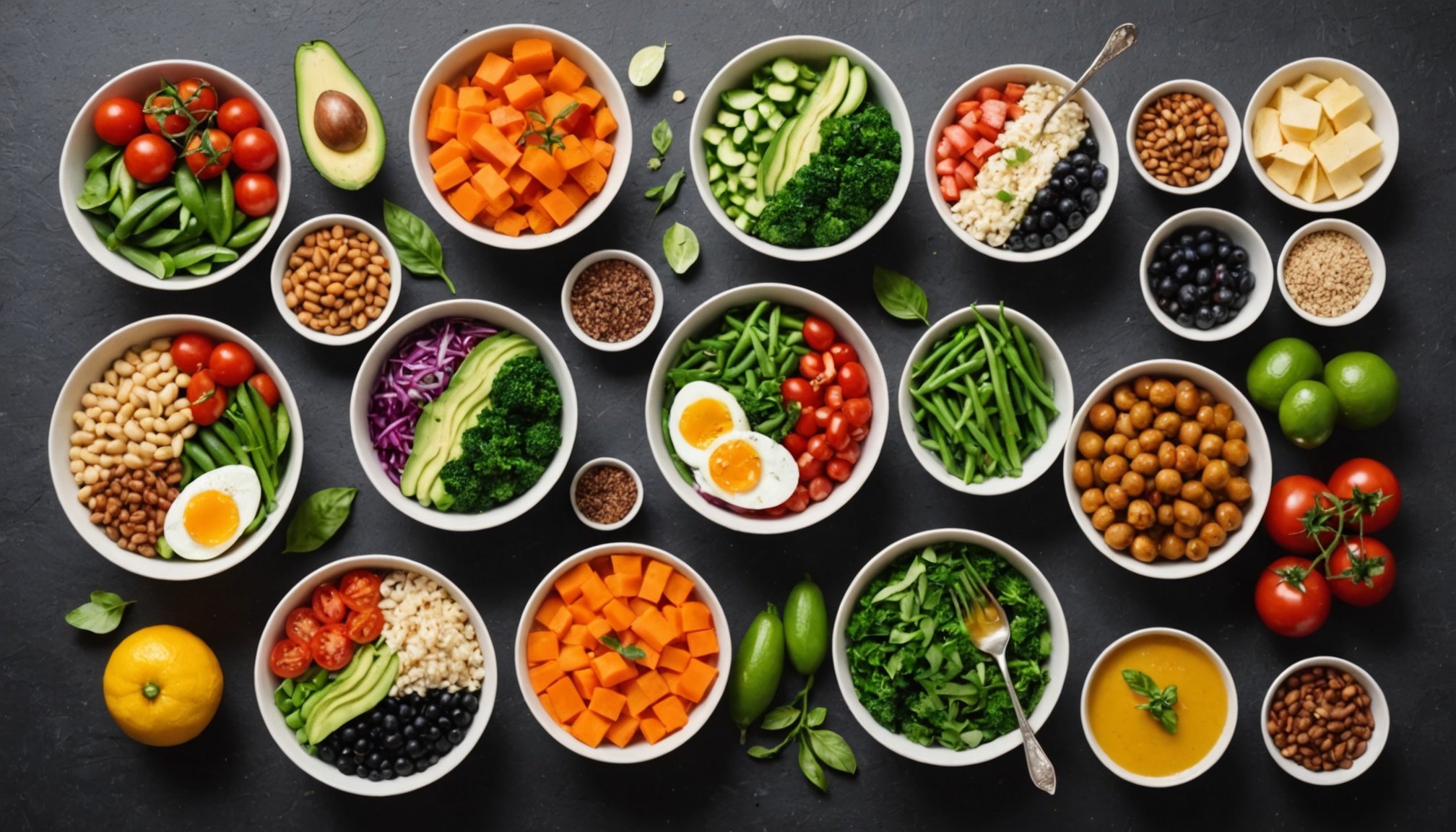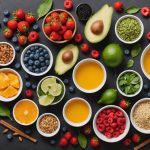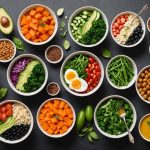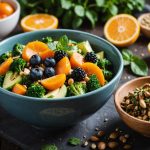Understanding Vegetarian Nutrition for Athletes
Navigating the nutritional needs of athletes within a vegetarian diet requires a focus on macronutrients like carbohydrates, proteins, and fats. These are critical for fuelling workouts and aiding in recovery. Carbohydrates serve as the primary energy source. They should constitute a significant portion of an athlete’s diet to ensure sustained energy levels throughout intensive training sessions.
Proteins play a key role in muscle repair and recovery. While some might worry about protein deficiency in vegetarian diets, this can be managed. Various plant-based proteins like lentils, chickpeas, and tofu provide sufficient protein intake for vegetarian athletes.
Also to discover : Embracing the Raw Food Lifestyle: Smart Tips for Staying Energized During Chilly UK Winters
Healthy fats, also integral, assist in the absorption of vitamins and provide energy. Incorporating nuts, seeds, and avocados ensures that an athlete’s fat intake is balanced and beneficial.
Micronutrients and vitamins, though needed in smaller quantities, are crucial for athletic performance. Despite common misconceptions, a vegetarian diet is capable of supporting athletic performance. With careful planning, athletes can meet their nutritional needs.
Have you seen this : Essential Tips for Sticking to a Gluten-Free Diet During Your UK Travels
Addressing nutrient balance by understanding these components is essential in constructing an efficient vegetarian athlete diet. Dispelling myths and focusing on evidence-based nutrition can optimize performance and well-being.
Key Protein Sources for Vegetarian Athletes
Navigating protein intake as a vegetarian athlete can be quite the challenge. Plant-based protein sources, such as legumes, nuts, and seeds, offer diverse options to maintain a balanced diet. Each source has unique benefits. Legumes like lentils and chickpeas offer substantial protein content combined with high fiber, making them fantastic for promoting satiety and digestive health. Nuts and seeds, on the other hand, provide protein alongside healthy fats, essential for heart health.
A crucial aspect of vegetarian protein sources is ensuring a complete amino acid profile. This can often be achieved by combining different protein alternatives, like rice and beans, to ensure all essential amino acids are present in the diet. Eating a varied diet can cover these bases naturally and effectively.
Understanding how to calculate protein needs is paramount, especially for athletes. A general rule of thumb is 0.8 grams of protein per kilogram of body weight. However, this can increase to 1.2-2.0 grams for athletes depending on the intensity and type of training. Grasping these numbers allows for tailored meal planning, ensuring that performance and recovery are optimally supported. Thus, vegetarian athletes can thrive by intelligently leveraging their protein alternatives.
Effective Meal Planning Strategies
Designing a well-balanced meal plan is crucial for meeting athletes’ varied energy needs. When integrating vegetarian meal prep, it’s essential to ensure that all nutritional bases are covered. A successful plan often includes an array of proteins, complex carbohydrates, and healthy fats to fuel performance and recovery. For instance, chickpeas and lentils are excellent protein sources and can be incorporated into numerous dishes.
Meal prepping is key to maintaining consistency and nutrient adequacy. Start by dedicating a day to prepare and portion meals for the week. This not only saves time but also ensures you’re consuming meals that are nutritionally balanced and tailored to your dietary requirements. Storage in glass containers can enhance the freshness and flavour of your dishes throughout the week.
Incorporating seasonal and local UK produce can inject variety and freshness into your diet while also supporting local agriculture. Root vegetables like carrots and parsnips are abundant in UK winters, providing essential nutrients and flavour. By focusing on what’s in season, you can create diverse meal plans that keep your palates excited and your body adequately nourished.
Adopting these strategies for nutritional planning can effectively meet your dietary goals, providing the necessary resources for athletic success.
Examples of Balanced Vegetarian Meals
Creating a balanced vegetarian meal involves more than just skipping meat. It’s about ensuring your diet provides all necessary nutrients. Let’s explore various vegetarian recipes that fit into a balanced diet meal plan.
Breakfast Ideas
Kickstart your day with energy-packed options. Opt for overnight oats infused with chia seeds and topped with fresh fruit. This meal is not only nutritious but also convenient for busy mornings. Consider a smoothie bowl loaded with spinach, bananas, and nut butter for those on the move. These options ensure you start your day on the right foot.
Lunch Options
Maintain your rhythm with balanced lunch examples like quinoa salad mixed with chickpeas, diced bell peppers, and avocado. This hearty meal keeps you satisfied without feeling sluggish. Alternatively, try a hearty lentil soup served with whole grain bread. These meals keep you going strong throughout the day.
Dinner Recipes
As the day winds down, a satisfying dinner is key. Indulge in a flavorful stir-fry with tofu, broccoli, and cashews in a tangy soy ginger sauce. If you crave something heartier, a veggie lasagna with layers of zucchini, spinach, and ricotta can be your go-to dish. These recipes support recovery and muscle building, rounding out your day perfectly.
Addressing Common Dietary Concerns
Understanding dietary challenges is essential for athletes, particularly those following a vegetarian diet. Such a diet often leads to nutritional deficiencies in crucial vitamins and minerals like iron, B12, and omega-3 fatty acids. These nutrients are vital for maintaining energy levels and overall athlete health.
Iron is essential for oxygen transport in the blood, and its deficiency can lead to fatigue and decreased performance. Athletes can enhance iron absorption by consuming vitamin C-rich foods alongside iron-rich plant-based sources like lentils and spinach. Vitamin B12, necessary for brain and nerve function, is mainly found in animal products, making supplementation a wise choice for vegetarian athletes. Omega-3 fatty acids, important for heart health and inflammation reduction, can be sourced from flaxseeds or algae-based supplements.
Proper hydration is another critical aspect often overlooked. Hydration helps maintain optimal athlete health and enhances performance. Balancing electrolytes—minerals like sodium, potassium, and magnesium—can prevent cramps and ensure endurance. Consuming electrolyte-rich drinks post-workout can replenish what is lost through sweat.
Utilising these strategies ensures athletes can combat dietary challenges effectively, support their health, and achieve peak performance.
UK-Specific Food Options for Vegetarian Athletes
The UK offers a variety of popular vegetarian foods that cater to athletes’ nutritional needs. With an emphasis on local ingredients and sustainability, the country has become a hub for organic and ethically sourced produce. Among the most popular options are hearty root vegetables and leafy greens, which are abundant and provide the necessary vitamins and minerals for high-performance lifestyles.
For those seeking out organic offerings, farmers’ markets across the UK are an excellent resource. Local producers are increasingly focusing on sustainable practices, ensuring that ingredients are both fresh and environmentally friendly. This supports not only personal health but also the well-being of the planet.
Adapting traditional UK dishes can also provide satisfying and nourishing meals tailored to a vegetarian athlete’s diet. Classics such as shepherd’s pie or bangers and mash can be revamped with plant-based proteins, like lentils or tofu, to maintain the essence of these beloved recipes while enhancing their nutritional profile. By incorporating local vegetables and grains, athletes can enjoy meals that are both culturally rich and aligned with their dietary goals. Embracing these UK-specific options allows vegetarian athletes to thrive with a delicious and sustainable diet.











